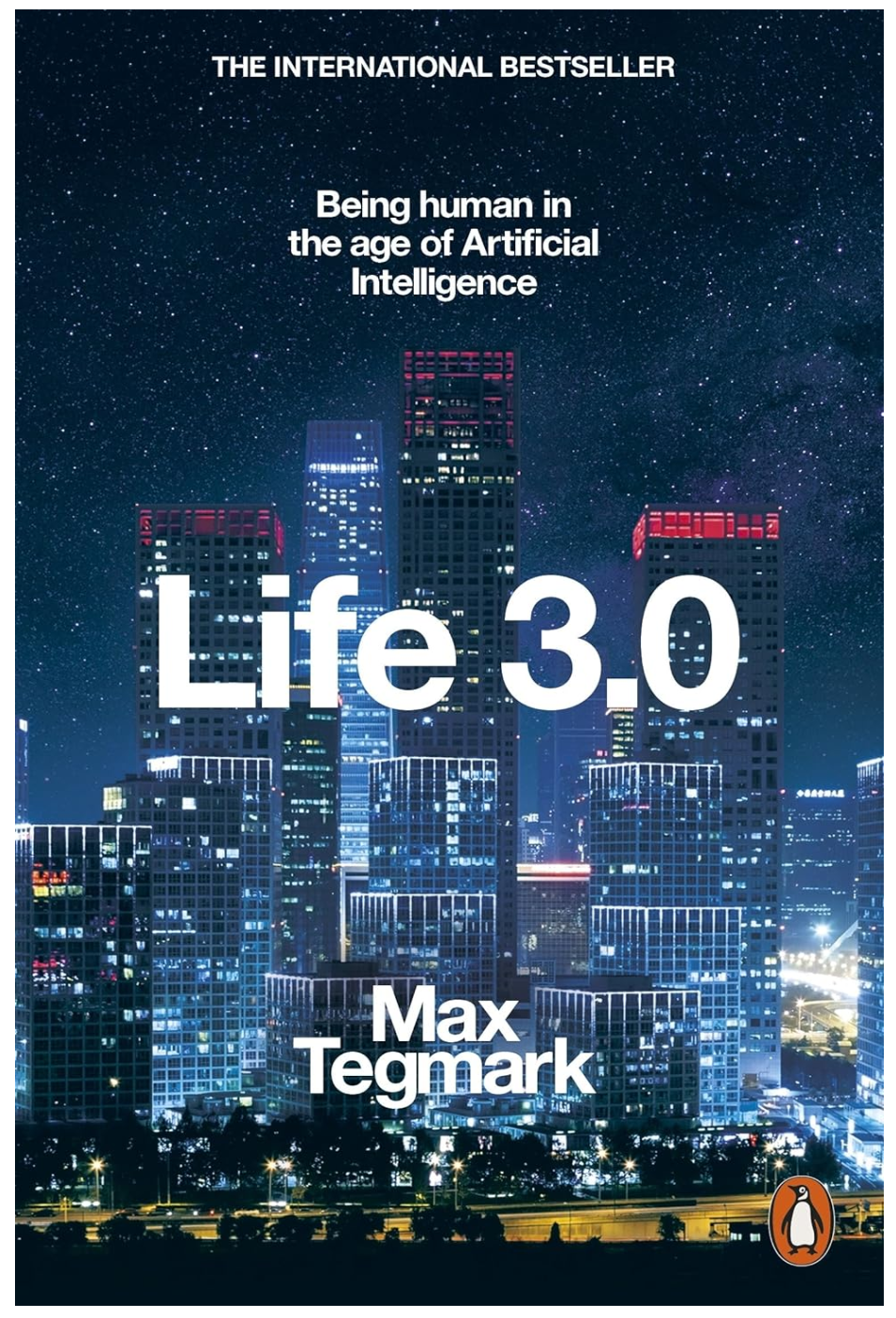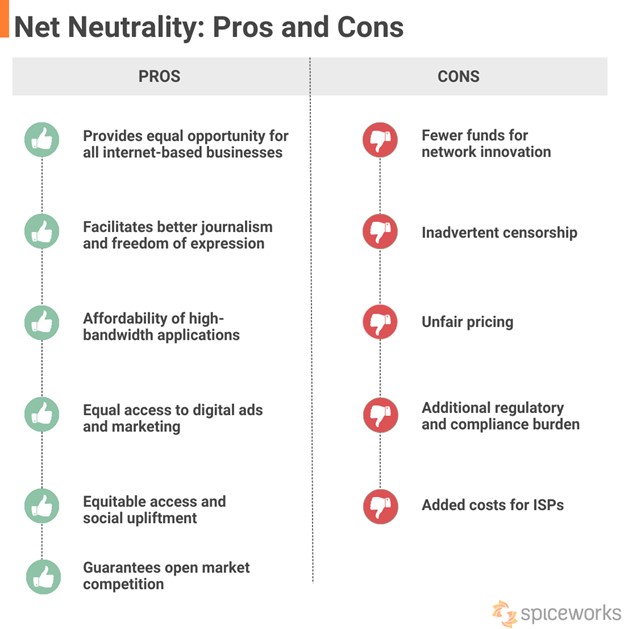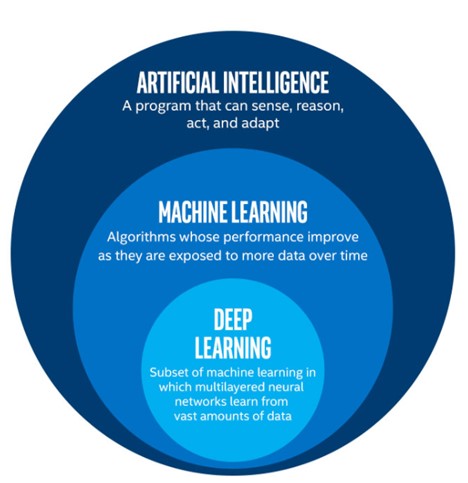19 min to read
If you read our blog often sometimes we go into these tangents and phylosofical questions on technology and the future. I've started reading Life 3.0:

https://www.amazon.com/Life-3-0-Being-Artificial-Intelligence/dp/1101946598
Here is my take on this book: Life 3.0: Being Human in the Age of Artificial Intelligence" by Max Tegmark explores the future of AI and its impact on society, economy, and how we define life itself. From a Codedesign perspective, the themes and insights of "Life 3.0" resonate deeply with our commitment to harnessing advanced digital marketing solutions while navigating the ethical, practical, and transformative potentials of AI. Our team recognizes that AI's evolution, as outlined in "Life 3.0," presents both opportunities and challenges for digital marketing. The book’s exploration of AI's capability to perform tasks that extend beyond human ability aligns with our pursuit of innovative marketing strategies. For instance, AI's role in data analysis and customer insights allows for highly personalized marketing campaigns, predictive analytics, and automated content creation. These technologies enable us to deliver more effective, targeted advertising strategies that drive better outcomes for our clients.
Tegmark’s discussion on the ethical implications of AI development and its autonomy echoes Codedesign's commitment to ethical digital marketing practices. As AI technologies become more integrated into our strategies, ensuring these systems are designed with fairness, transparency, and respect for privacy becomes paramount. We are vigilant about the data we collect and analyze, ensuring all AI-driven marketing efforts comply with global data protection regulations and ethical standards. This approach not only safeguards our clients' reputations but also builds trust with their customers.
"Life 3.0" also delves into AI's impact on the future of work, a topic of great significance to digital marketing agencies. Codedesign views the advent of AI not as a replacement for human creativity and strategic thinking but as a tool that augments our capabilities. By automating routine tasks, AI frees our team to focus on creative strategy, content creation, and personalized client interaction. We embrace AI as a means to enhance our services, increase efficiency, and provide our team with opportunities for professional growth in a tech-driven landscape.
The book emphasizes the importance of adapting to and preparing for a future shaped by AI advancements. At Codedesign, we are committed to continuous learning and innovation, staying abreast of the latest technologies in AI and digital marketing. This mindset ensures we can leverage AI's full potential while navigating its complexities and evolving alongside it. By fostering a culture of innovation and adaptability, we position ourselves and our clients for success in a rapidly changing digital ecosystem.
"Life 3.0" is not just a contemplation of AI's future impact but a call to action for digital marketing agencies. It urges us to innovate responsibly, embrace ethical practices, and prepare for the transformative power of AI. By doing so, we can harness AI to create more impactful, efficient, and ethical digital marketing strategies that propel our clients forward in the age of artificial intelligence. Codedesign remains at the forefront of this evolution, embodying the principles of "Life 3.0" as we navigate the exciting possibilities AI brings to the digital marketing domain.
The internet has undoubtedly revolutionized the way we live, work, and communicate. It has opened up endless possibilities for businesses, individuals, and governments to connect with each other on a global scale. However, as technology continues to advance at an unprecedented pace and society becomes increasingly reliant on the internet, important legal considerations must be taken into account in shaping its future. Let's dive deeper into the complex web of regulations and innovations that shape the future of the Internet as we know it.

Internet Governance
As the internet continues to penetrate every aspect of our lives, it has become increasingly decentralized, giving rise to a host of new challenges and questions. Who should regulate this massive network of information, and how can we ensure that it remains fair and open for all? The impact of Internet governance on society is profound, affecting everything from free speech and individual privacy to economic competitiveness and geopolitical power dynamics. The need for effective governance mechanisms that promote transparency and accountability is more pressing than ever before. For this reason, international organizations such as the United Nations have established working groups to address these issues and propose solutions that balance competing interests.
Global Data Privacy Regulations
Different countries have recognized the need for protecting personal information online and have enacted data protection laws as a result. The General Data Protection Regulation (GDPR) in Europe is a prime example of a comprehensive set of regulations designed to safeguard individuals' data.
While these laws may differ across countries, they are all part of a global trend toward ensuring that people have control over their personal information in the online world. As such, understanding these regulations and the implications they have for individuals and businesses is critical for anyone operating in the digital space.
The future of Global Data Privacy Regulations in the context of Artificial Intelligence (AI) is a complex and evolving landscape, marked by a delicate balance between innovation and individual privacy rights. From a Codedesign perspective, understanding and anticipating these changes is crucial for devising advanced digital marketing solutions that are not only effective but also ethical and compliant with international standards. Here's a comprehensive view on how future Global Data Privacy Regulations might evolve with AI and its implications for digital marketing:
Tighter Regulation and Enforcement
As AI technologies become more pervasive and sophisticated, we can expect a corresponding tightening of data privacy regulations globally. These regulations will likely focus on ensuring transparency, consent, and security in the collection, processing, and use of personal data by AI systems. For digital marketing agencies, this means adopting practices that prioritize consent-based marketing and investing in AI solutions that are designed with privacy in mind. For instance, GDPR in Europe and CCPA in California have already set precedents for stricter data privacy measures, which are expected to influence future regulations worldwide.
The Rise of AI-specific Legislation
Current data privacy laws may not fully address the unique challenges posed by AI, such as automated decision-making, bias, and the potential for mass surveillance. Therefore, we anticipate the introduction of AI-specific legislation that addresses these issues directly. This could include requirements for explainability in AI algorithms, ensuring that automated decisions can be understood and contested by individuals, and measures to mitigate bias in AI-driven marketing practices. Agencies will need to stay ahead of these regulations by adopting AI technologies that are not only powerful but also transparent and fair.
Cross-border Data Flow Restrictions
Global data privacy regulations are likely to continue addressing the challenges of cross-border data flows, especially in relation to AI, where data is often processed and stored in multiple jurisdictions. Agencies operating internationally will need to navigate these regulations carefully, ensuring compliance with local data protection laws while transferring data across borders. This may involve adopting data localization strategies or ensuring adequate protections are in place when transferring data internationally, in line with mechanisms like the EU's Standard Contractual Clauses (SCCs).
Emphasis on Data Minimization and Purpose Limitation
Future regulations are expected to emphasize the principles of data minimization and purpose limitation more strongly. This means that digital marketing strategies powered by AI will need to collect only the data that is strictly necessary for a specific purpose and ensure that the data is not used in ways that exceed initial consent. Agencies will need to refine their data collection and processing practices, focusing on efficiency and necessity rather than the volume of data collected.
Ethical AI as a Competitive Advantage
In response to both regulatory and public demand for ethical AI practices, agencies that prioritize ethical considerations in their AI implementations will gain a competitive edge. This involves not only adhering to privacy regulations but also considering the broader ethical implications of AI in marketing, such as avoiding manipulative practices and respecting consumer autonomy. Agencies that can demonstrate a commitment to ethical AI will build stronger trust with clients and consumers alike.

Cybersecurity Threats
The rise of the internet has also brought about new and evolving cybersecurity threats that have the potential to disrupt entire networks, compromise sensitive data, and cause widespread financial and reputational damage. As technology continues to advance, so do the methods used by cybercriminals, making it a constant battle to stay ahead of these threats. Governments, businesses, and individuals must work together to establish robust cybersecurity measures and implement strict protocols to protect against these threats. Failure to do so will put both personal and national security at risk.
Escalation of AI-powered Cyber Attacks
As AI technologies become more advanced, we anticipate an increase in AI-powered cyber attacks. These could include more sophisticated phishing attacks that use AI to mimic communication styles, AI-driven malware that can adapt to evade detection, or the use of machine learning to automate the discovery of new vulnerabilities. For digital marketing agencies, this means that the cybersecurity measures in place today may not suffice tomorrow. Vigilance and continuous updating of cybersecurity practices are paramount to protect both agency and client data.
The Dual-Use Nature of AI in Cybersecurity
While AI poses new threats, it also offers powerful tools for enhancing cybersecurity defenses. AI can help identify patterns indicative of cyber threats more efficiently than traditional methods, predict attacks before they happen based on anomalies, and automate responses to attacks in real-time. From a Codedesign perspective, investing in AI-driven cybersecurity solutions is not just a measure of protection but a strategic advantage. This dual-use nature of AI underscores the importance of developing AI capabilities with an eye towards both offensive and defensive applications in cybersecurity.
The Need for AI-specific Cybersecurity Expertise
The complexity of AI systems and the novel threats they introduce necessitate a new level of cybersecurity expertise. Professionals with a deep understanding of both AI technology and cybersecurity practices are becoming increasingly valuable. For agencies, this means prioritizing the development of such expertise within their teams or seeking partnerships with organizations that specialize in AI cybersecurity. Codedesign recognizes the importance of this expertise and is committed to ensuring our team remains skilled in the latest cybersecurity and AI technologies.
Regulatory and Ethical Considerations
The future of AI in cybersecurity is also likely to be shaped by regulatory and ethical considerations. As governments and international bodies grapple with the implications of AI, we may see new regulations aimed at securing AI systems and ensuring they are used responsibly in the context of cybersecurity. Digital marketing agencies will need to navigate these regulations carefully, ensuring that their use of AI in both marketing and cybersecurity practices remains compliant and ethical.
Increasing Collaboration within the Cybersecurity Community
Given the sophistication of AI-powered cyber threats, no single organization can stand alone in its defense. Increasing collaboration among businesses, cybersecurity experts, and governments will be crucial to develop and share strategies, tools, and intelligence to combat these threats effectively. For Codedesign, participating in and contributing to these collaborative efforts is essential to stay ahead of cybersecurity threats and protect our clients' interests.

Net Neutrality Principles
The debate around net neutrality principles remains a hot topic of discussion. The idea that all data on the internet should be treated equally, without any form of discrimination or charging, is at the core of net neutrality.
The ongoing discussions about preserving this principle have become vital to the future of the Internet. Net neutrality ensures that users have unrestricted access to all online content, regardless of their social status or economic background. It provides a level playing field for start-ups and established businesses alike, fostering competition and innovation. While the debate around net neutrality rages on, it's clear that the freedom to access online content without restrictions or biases is paramount to the internet's continued growth and success.
Net neutrality fosters an environment of innovation by providing a level playing field for new ideas and services to compete. This principle has enabled the rise of now-dominant internet companies and services, which might not have succeeded if they had been throttled in their early days. For digital marketing, this means a continual evolution of platforms, tools, and methodologies that can be leveraged to reach and engage with target audiences more effectively.
Furthermore, net neutrality supports consumer choice by allowing users to access all content equally, making them more likely to discover new products, services, and content. This democratization of access is vital for digital marketing strategies aimed at increasing visibility and engaging with a broad audience.
Net Neutrality and Advanced Analytics
Advanced analytics and big data play a significant role in optimizing digital marketing strategies. Net neutrality ensures that data can be collected, analyzed, and applied without the risk of being slowed down or blocked by ISPs. This is crucial for real-time analytics and the delivery of personalized marketing content, which rely on the unrestricted flow of data to create tailored experiences for users. Without net neutrality, the effectiveness of these strategies could be compromised, potentially leading to a less personalized and engaging user experience.
Advocacy for Net Neutrality
Given its importance to the digital marketing industry and the broader digital economy, Codedesign advocates for the preservation of net neutrality. We understand that a free and open internet is essential for innovation, competition, and the equitable distribution of opportunities across all sectors of the economy.
Net neutrality principles are integral to maintaining a competitive, innovative, and open internet. For digital marketing agencies like Codedesign, these principles ensure that all businesses, regardless of size, have equal opportunities to connect with their audiences. By supporting net neutrality, we uphold the values of fairness, innovation, and choice in the digital landscape, ensuring that the internet remains a powerful tool for growth and engagement in the digital age.
Blockchain Technology
Blockchain technology has the potential to revolutionize many industries, including finance, supply chain management, and healthcare. Its decentralized nature promises increased security, transparency, and efficiency in various processes.
However, as with any emerging technology, there are both legal and technical considerations that must be carefully evaluated before the widespread adoption of blockchain technology can occur. Regulations must be put in place to protect consumers and ensure fair competition while technical challenges and limitations must also be addressed to ensure the technology's reliability and scalability.

Artificial Intelligence and Machine Learning
Artificial Intelligence (AI) and Machine Learning (ML) continue to be at the forefront of technological advancements, driving innovation across numerous sectors. These technologies offer the potential to automate complex processes, enhance decision-making, and provide insights from large datasets at unprecedented speeds. On the downside, their rapid development also raises critical questions about ethics, job displacement, and privacy.
As AI systems become more integrated into daily operations, there's a growing concern over their ability to make unbiased decisions and the transparency of their algorithms. Additionally, as these technologies learn and evolve, ensuring they do so without infringing on personal privacy or perpetuating existing biases becomes increasingly challenging.
Artificial Intelligence (AI) and Machine Learning (ML) are revolutionizing the landscape for digital agencies, transforming how they create, execute, and measure the success of digital marketing campaigns. These technologies offer unprecedented capabilities to analyze data, predict trends, personalize content, and optimize strategies in real-time, thus providing a competitive edge in the fast-paced digital marketplace. From a Codedesign perspective, leveraging AI and ML is not just an option but a necessity to stay ahead and deliver superior results for clients. Here’s how AI and ML are shaping the future for digital agencies:
Enhanced Customer Insights and Personalization
AI and ML algorithms excel at processing vast amounts of data to extract meaningful insights about consumer behavior, preferences, and trends. For digital agencies, this means the ability to create highly personalized marketing campaigns that resonate with individual consumers. By analyzing data from various touchpoints, AI can identify patterns and predict customer needs, enabling agencies to tailor content, recommendations, and offers to match individual preferences, significantly improving engagement and conversion rates.
Efficient Campaign Management and Optimization
AI-driven tools automate the process of campaign management and optimization, freeing up time for strategic thinking and creativity. Machine learning algorithms continuously analyze campaign performance data, making adjustments in real time to ensure optimal results. This includes everything from bid adjustments in programmatic advertising to A/B testing variations in content marketing. The efficiency and accuracy of AI in these tasks mean that digital agencies can achieve better outcomes with less manual effort.
Advanced Analytics and Reporting
The depth and breadth of analytics provided by AI and ML technologies go far beyond traditional reporting tools. These advanced systems can uncover insights that would be impossible to detect with human analysis alone, such as subtle patterns in consumer behavior or emerging trends in large datasets. For agencies, this translates into the ability to provide clients with deeper insights and more strategic recommendations. Additionally, predictive analytics can forecast future trends, allowing agencies and their clients to stay ahead of the market curve.
Ethical Considerations and Transparency
As digital agencies adopt AI and ML, ethical considerations and transparency become increasingly important. Agencies must ensure that AI systems are used responsibly, avoiding biases in data and algorithms that could lead to unfair or intrusive marketing practices. It's also crucial to maintain transparency with clients about how AI is being used to enhance strategies and outcomes.

Internet of Things (IoT) and 5G
The Internet of Things (IoT) is a network of connected devices that collect, exchange, and analyze data. With the emergence of 5G technology, IoT is expected to expand exponentially in the coming years.
While this presents exciting possibilities for improved connectivity and convenience, it also brings with it new legal considerations. Issues such as data privacy, security, and liability arise as more devices connect to the internet and collect sensitive information.
The Internet of Things (IoT) and 5G technology are set to redefine the digital landscape, offering transformative possibilities for businesses, consumers, and digital agencies alike. As a cutting-edge digital agency, Codedesign is keenly aware of the potential that IoT and 5G hold for advancing digital marketing strategies, enhancing customer experiences, and enabling more efficient operations. Here’s a look at how these technologies are poised to impact the digital world:
Accelerated Connectivity and Data Exchange
5G technology promises unprecedented speeds and reliability in internet connectivity, vastly improving the performance of IoT devices. This enhanced connectivity enables more devices to be interconnected seamlessly, facilitating real-time data exchange and insights. For digital agencies, this means the ability to gather and analyze data from a broader array of sources in real time, providing a more comprehensive view of consumer behaviors and enabling more responsive, dynamic marketing strategies.
Enabling Advanced Customer Experiences
The combination of IoT and 5G opens up new avenues for creating immersive and interactive customer experiences. For instance, augmented reality (AR) and virtual reality (VR) applications, which require high bandwidth and low latency, will become more viable as marketing tools. These technologies can be used to create engaging experiences that bring products to life, offer virtual try-ons, or provide immersive content that enhances brand storytelling. Digital agencies can leverage these capabilities to create novel marketing campaigns that captivate audiences and drive engagement.
Precision Marketing and Personalization
IoT devices provide a wealth of data on consumer habits, preferences, and behaviors. When combined with the speed and capacity of 5G networks, this data can be processed and analyzed almost instantly, enabling highly personalized marketing messages to be delivered at the right moment and through the most effective channels. For example, smart home devices can provide insights into consumer lifestyle habits, while wearable technology offers data on health and fitness preferences. Digital agencies can use these insights to tailor marketing strategies that resonate on a personal level, significantly enhancing campaign effectiveness.
Enhancing Operational Efficiency
For digital agencies and their clients, IoT and 5G also offer opportunities to streamline operations and reduce costs. IoT devices can monitor and optimize the performance of various systems, from content delivery networks to customer service chatbots, ensuring they operate efficiently. 5G technology enhances these capabilities by facilitating faster data transmission and processing, enabling real-time adjustments that can improve operational efficiency. This not only reduces operational costs but also enhances the quality of services provided to clients.
Navigating Challenges and Privacy Concerns
While IoT and 5G offer significant benefits, they also present challenges, particularly in terms of security and privacy. The increased connectivity and data exchange raise concerns about data protection and the potential for breaches. Digital agencies must prioritize these concerns, implementing robust security measures and ensuring compliance with data protection regulations. Transparency with clients and consumers about how data is collected, used, and protected will be crucial in maintaining trust.

Quantum Computing
Quantum computing represents a significant leap forward in our ability to process information, promising to solve complex problems that are currently beyond the reach of classical computers. Unlike traditional computing, which relies on bits to process information in binary form, quantum computers use quantum bits or qubits, which can represent and process a large amount of data simultaneously thanks to the principles of quantum superposition and entanglement.
This technology has the potential to revolutionize fields such as cryptography, material science, pharmaceuticals, and complex system simulation. However, its development also raises a few cybersecurity questions. For instance, quantum computers could easily break many of the encryption codes that protect our digital communication today. Thus, alongside the excitement for its capabilities, there is a pressing need for quantum-safe cryptography and new security paradigms to safeguard sensitive information in the quantum age.

As we continue to advance technologically, we must recognize the impact that the legal and technical considerations surrounding the internet have on our society. From governance and data privacy regulations to cybersecurity threats and emerging technologies, these factors will shape the future of the Internet in ways that we can only begin to imagine. Let's carefully navigate these challenges and work together to build a fair, open, and secure online environment for all. The future of the internet depends on it.
Quantum computing represents a paradigm shift in computational capabilities, offering the potential to process complex problems and data at speeds unattainable by classical computers. This leap in processing power is due to quantum bits, or qubits, which can represent and store information in a way that allows for more complex computations to be performed simultaneously. For digital agencies like Codedesign and the broader digital marketing industry, the advent of quantum computing opens up new horizons for innovation, data analysis, security, and beyond. Here's an exploration of the impact and opportunities quantum computing presents:
Transformative Data Analysis Capabilities
Quantum computing's ability to process vast datasets at unprecedented speeds can significantly enhance data analysis and insights generation. In digital marketing, where understanding consumer behavior and predicting trends rely heavily on data analysis, quantum computing can revolutionize how agencies gather, process, and interpret data. For instance, complex consumer data from multiple sources can be analyzed more efficiently, enabling more precise targeting and personalization of marketing strategies at scale.
Breakthroughs in Machine Learning and AI
The power of quantum computing could supercharge AI and machine learning algorithms, enabling them to learn and evolve at rates far beyond current capabilities. This could lead to the development of highly sophisticated AI systems that can offer more accurate predictions, automate more complex tasks, and provide deeper insights into customer behavior and market trends. Digital agencies could leverage these advanced AI capabilities to optimize marketing strategies, automate content creation, and deliver highly personalized customer experiences with greater efficiency.
Enhanced Security Protocols
Quantum computing also presents a double-edged sword in terms of cybersecurity. On one hand, it threatens to break current encryption methods, posing significant challenges to data security. On the other, it offers the potential to create virtually unbreakable encryption techniques based on quantum key distribution, providing a new level of security for digital transactions and communications. For digital agencies, staying ahead of these developments is crucial to protect client data and maintain trust. Agencies will need to adopt new quantum-resistant encryption methods to safeguard against potential quantum computing-based attacks.
Challenges in Implementation and Accessibility
While the prospects of quantum computing are exciting, its implementation and widespread accessibility remain in the developmental stages. Quantum computers require highly specialized environments to operate, and the technology is currently expensive and complex to maintain. However, as research progresses and the technology becomes more accessible, digital agencies should prepare for its integration into their operations and services, keeping abreast of developments and potential applications in digital marketing.
Preparing for a Quantum Future
For digital agencies, preparing for the quantum computing era involves staying informed about technological advancements, understanding the potential impacts on digital marketing practices, and beginning to consider how quantum computing could be integrated into future services. Additionally, agencies must start planning for the cybersecurity implications, ensuring they are ready to adopt quantum-resistant encryption to protect data.

Frequently Asked Questions
What are the main challenges in internet governance, and how can they affect users and businesses?
The realm of internet governance is fraught with challenges that directly impact both users and businesses, including the fragmentation of the internet due to varying national policies, the ongoing struggle for balance between freedom of expression and the need for regulation against harmful content, and the complexities of managing cross-border data flows in a manner that respects differing privacy laws and norms. These issues can lead to increased operational costs for businesses as they navigate compliance with diverse regulations and may inhibit the global reach of digital marketing campaigns. For users, the challenges in internet governance can result in restricted access to content and services, as well as concerns over privacy and the protection of personal data.
How do global data privacy regulations like GDPR impact digital marketing practices?
Global data privacy regulations such as the General Data Protection Regulation (GDPR) have a profound impact on digital marketing practices. These regulations mandate strict guidelines on the collection, storage, and use of personal data, requiring explicit consent from individuals before their data can be used for marketing purposes. As a result, digital marketers must ensure their strategies are compliant, leading to more transparent data practices and potentially limiting the scope of data-driven marketing techniques. However, this can also be seen as an opportunity to build trust with consumers by prioritizing their privacy and data security, ultimately enhancing brand loyalty.
What are the implications of AI and machine learning on digital marketing strategies and customer privacy?
AI and machine learning are reshaping digital marketing strategies by enabling more personalized and efficient campaigns. These technologies allow for the analysis of vast amounts of data to identify patterns and predict consumer behavior, leading to highly targeted marketing efforts. However, this raises significant concerns regarding customer privacy, as the extensive collection and analysis of personal data can be intrusive. Digital marketers must balance the benefits of AI-driven personalization with ethical considerations, ensuring that they respect consumer privacy and comply with data protection regulations.
How do cybersecurity threats evolve with advancements in technology, and what measures can be taken to protect against them?
With technological advancements, cybersecurity threats become more sophisticated, targeting not just traditional IT infrastructure but also emerging digital marketing platforms. Phishing, ransomware, and advanced persistent threats (APTs) are just a few examples that can compromise both business data and consumer trust. To protect against these evolving threats, businesses must implement robust security measures, including regular security audits, employee training on cybersecurity best practices, and the adoption of advanced security technologies like encryption and multi-factor authentication. It's essential for digital marketers to work closely with IT security teams to safeguard marketing platforms and customer data.
What is the significance of net neutrality for digital marketing and online content access?
Net neutrality is fundamental to ensuring equal access to online content and services, preventing Internet Service Providers (ISPs) from favoring or blocking specific websites or services. Its significance for digital marketing lies in the assurance that content reaches users without undue interference or prioritization based on payment to ISPs. Without net neutrality, smaller businesses might struggle to compete with larger entities capable of paying for enhanced access to consumers, potentially stifling innovation and limiting the diversity of content available to users.
How can blockchain technology transform industries beyond finance, such as digital marketing?
Blockchain technology offers transformative potential beyond its financial applications, including in digital marketing. It can introduce unprecedented transparency and security to advertising transactions, combating fraud by verifying the legitimacy of clicks and impressions. Blockchain can also facilitate more secure and transparent customer data management, enabling users to control their own data and decide how it's shared with advertisers. This not only enhances privacy but also improves the accuracy of targeting, benefiting both businesses and consumers.
In what ways could quantum computing revolutionize data analysis and security in digital marketing?
Quantum computing promises to revolutionize data analysis and security in digital marketing by processing information at speeds unattainable by traditional computers. This could dramatically enhance the ability to analyze consumer data, enabling real-time personalization of marketing messages at an unprecedented scale. However, quantum computing also presents potential challenges to security, as it could render current encryption methods obsolete. Anticipating these changes, marketers must stay informed about quantum-resistant encryption methods to protect sensitive customer data.
How do IoT and 5G technology intersect to improve digital marketing strategies and customer experiences?
The intersection of IoT (Internet of Things) and 5G technology can significantly enhance digital marketing strategies and customer experiences by enabling the collection of more detailed and real-time data. IoT devices provide a wealth of information on consumer behavior and preferences, which, when analyzed through the high-speed, low-latency capabilities of 5G networks, can facilitate highly personalized and timely marketing interventions. This synergy can lead to more engaging and effective marketing campaigns that meet consumers' needs more accurately and promptly.
What ethical considerations should digital marketing agencies take into account when implementing AI-driven strategies?
When implementing AI-driven strategies, digital marketing agencies should consider ethical issues related to transparency, consent, privacy, and bias. They must ensure that AI algorithms are transparent and explainable, with clear consent obtained for any data collection and use. Protecting consumer privacy should be paramount, with data handled securely and in compliance with relevant regulations. Agencies also need to be vigilant about potential biases in AI algorithms, which could lead to unfair or discriminatory marketing practices. Prioritizing these ethical considerations is crucial to maintaining trust and integrity in digital marketing.
How can businesses prepare for the technological shifts in digital marketing brought about by emerging technologies?
Businesses can prepare for technological shifts in digital marketing by fostering a culture of continuous learning and innovation within their teams. This involves staying informed about the latest technological developments, investing in training and development programs, and experimenting with new tools and platforms. Additionally, businesses should adopt a data-driven approach, leveraging analytics to inform their strategies and measure their effectiveness. Building flexible and adaptive marketing strategies that can quickly respond to new technological opportunities will be key to success in the ever-evolving digital landscape.
 |
Thoughts by Bruno GavinoBruno Gavino is the CEO of Codedesign, a Lisbon-based digital marketing agency, with offices in Boston, Singapore, and Manchester (UK). He plays a pivotal role in shaping the agency's growth and direction, particularly in the realm of digital marketing. Codedesign has built a strong team of dedicated professionals, including marketers, developers, and creative thinkers, with a mission to help businesses grow online. Bruno's expertise extends to various aspects of digital marketing, and he has been active in sharing his insights on the impact of significant global events on the digital marketing landscape. His contributions to the field extend beyond his role at Codedesign. Bruno Gavino is known for his broad perspective on digital strategies and innovative solutions that drive the company's vision. |
 |
CodedesignCodedesign is a digital marketing agency with a strong multicultural and international presence, offering expert services in digital marketing. Our digital agency in Lisbon, Boston, and Manchester enables us to provide market-ready strategies that suit a wide range of clients across the globe (both B2B and B2C). We specialize in creating impactful online experiences, focusing on making your digital presence strong and efficient. Our approach is straightforward and effective, ensuring that every client receives a personalized service that truly meets their needs. Our digital agency is committed to using the latest data and technology to help your business stand out. Whether you're looking to increase your online visibility, connect better with your audience, get more leads, or grow your online sales. For more information, read our Digital Strategy Blog or to start your journey with us, please feel free to contact us. |
CodeDesign is leading:
- Digital Agency
- Digital Marketing Agency
- Amazon Marketing Agency

Add comment ×